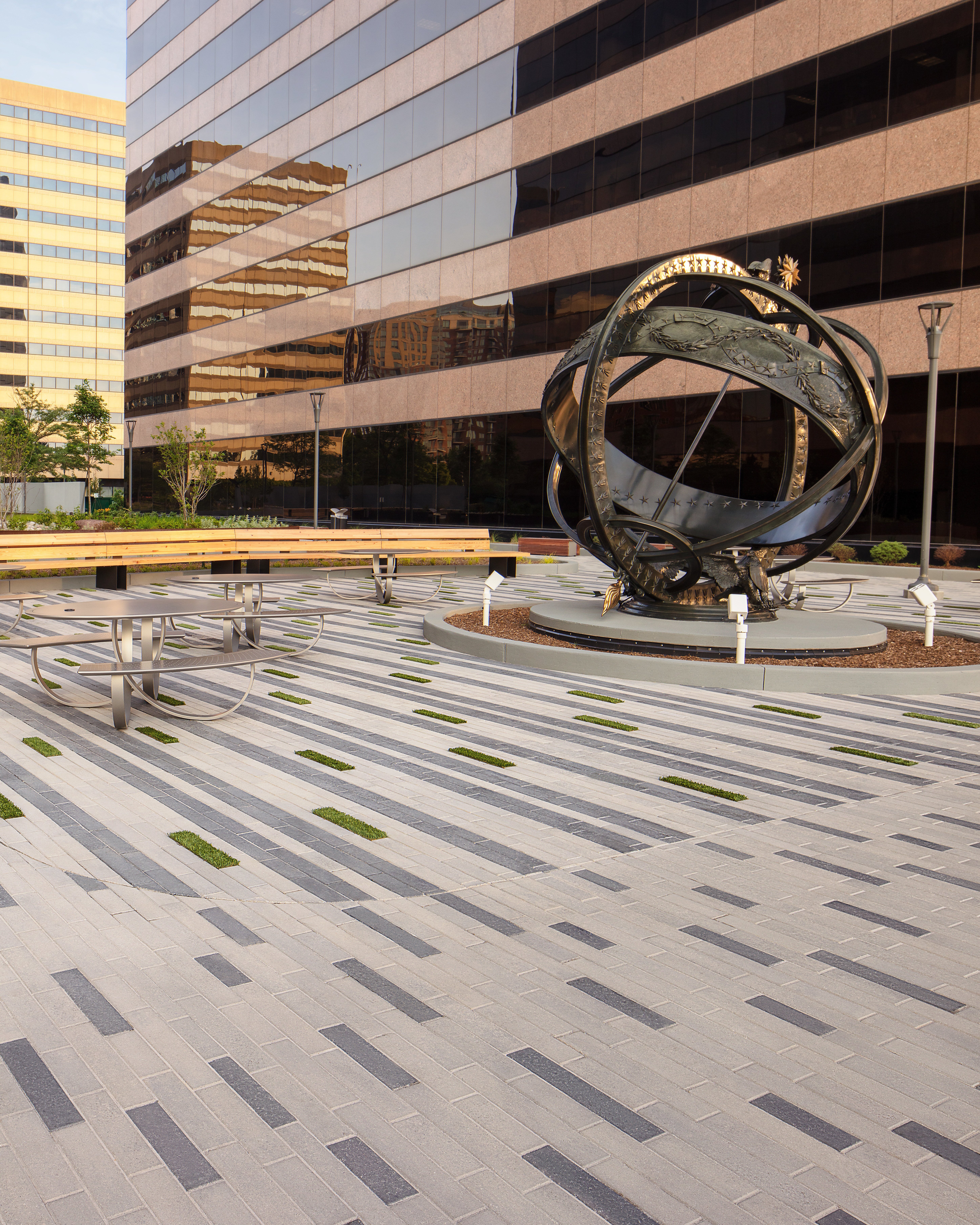Traditional stormwater management methods often prove inefficient and environmentally problematic. Techo-Bloc's permeable paving systems offer an innovative solution, utilizing the ground beneath for effective rainwater detention. These systems reduce stormwater runoff, prevent pollution, and support sustainability.
Advantages of Techo-Bloc's Permeable Paving Systems
Traditional surface detention ponds, designed to store excess rainfall, often use space inefficiently. Stormwater runoff from impervious surfaces like roofs, roads, and parking lots is typically funneled through a network of pipes into these ponds. While this method helps prevent rainwater overflow in localized areas, it introduces several issues. For instance, stormwater can carry pollutants into the ponds, posing environmental risks. These ponds can become breeding grounds for mosquitoes and other invasive insects, particularly when situated near residential neighborhoods.
A more efficient approach to managing rainwater volume is through the use of permeable pavers in outdoor spaces. These systems utilize the ground beneath them for detention, making excellent use of the land. By allowing water to permeate through the surface, these systems create a detention area beneath every square foot of permeable paving, which can be adjusted in depth as necessary.
Techo-Bloc’s permeable paving systems utilize crushed, angular, open-graded aggregate base materials, which differ significantly from traditional dense-graded aggregates. The open-graded aggregates provide approximately 40% void space, enabling water detention and rapid infiltration into the subbase.
 Feature Product : Aquastorm pavers in Grey
Feature Product : Aquastorm pavers in Grey
Calculating Stormwater Volume Capacity
The depth of the open-aggregate base in a permeable paving system is crucial for defining the stormwater volume capacity. Local rainfall averages help determine the appropriate depth: a shallow base may lead to runoff, while a too-deep base, although capable of handling excess rainfall, increases costs due to additional excavation and aggregates.
Preliminary design calculations are essential for determining the appropriate base depth, maximizing stormwater management efficiency, and ensuring the system can handle specified rainfall events by temporarily holding stormwater until it infiltrates into the ground, thereby reducing overflow and environmental pollution risks.
Real-World Applications of Techo-Bloc Permeable Pavers
Case Study: DEA Museum, Arlington, VA
The DEA Museum in Arlington, VA, serves as an exemplary project showcasing the effectiveness of Techo-Bloc’s permeable paving systems in stormwater management and sustainability. The project involved incorporating 18,000 square feet of Techo-Bloc’s Linea pavers, which provided both aesthetic appeal and functional benefits.
 Featured Product : Linea Pavers in Greyed Nickel and Onyx Black
Featured Product : Linea Pavers in Greyed Nickel and Onyx Black
Design Challenges and Requirements
The DEA Museum project had to meet strict design standards and sustainability goals. The museum’s location near the nation’s capital required a paving solution that could handle heavy foot traffic while maintaining a visually appealing environment. Moreover, the design needed to effectively manage stormwater to prevent runoff and potential flooding.
Sustainable Solutions
Techo-Bloc’s Linea pavers were chosen for their durability and permeability. These pavers facilitate water infiltration through their open-graded aggregate base, creating an underground detention system that stores stormwater. This design helps reduce the burden on municipal sewer systems and mitigates the risk of flooding in the surrounding areas.
The use of permeable pavers also contributes to water quality improvement. As stormwater passes through the paver system, pollutants are filtered out, reducing the contamination of local water bodies. This is particularly important in urban settings where runoff can carry various pollutants from impervious surfaces.
Long-term Benefits
The installation of Techo-Bloc’s permeable pavers at the DEA Museum not only addressed immediate stormwater management needs but also provided long-term sustainability benefits. The pavers’ high durability ensures they can withstand heavy traffic and harsh weather conditions, reducing the need for frequent replacements and minimizing maintenance costs.
Additionally, the project demonstrated Techo-Bloc’s commitment to sustainable building practices. By utilizing locally sourced materials and innovative design solutions, the DEA Museum project aligns with LEED certification goals, promoting environmental responsibility and resource efficiency.
Why Choose Techo-Bloc for Stormwater Management
Techo-Bloc’s permeable pavers offer a highly effective solution for controlling and managing stormwater overflow. Our products are designed to meet the highest industry standards, ensuring durability, efficiency, and sustainability. Whether for commercial, residential, or public spaces, Techo-Bloc permeable pavers are the ideal choice for sustainable and visually appealing stormwater management solutions. To see more examples of our successful projects, check out our other case studies.
For more information on Techo-Bloc's permeable paving products, please contact your local Techo-Bloc representative.


